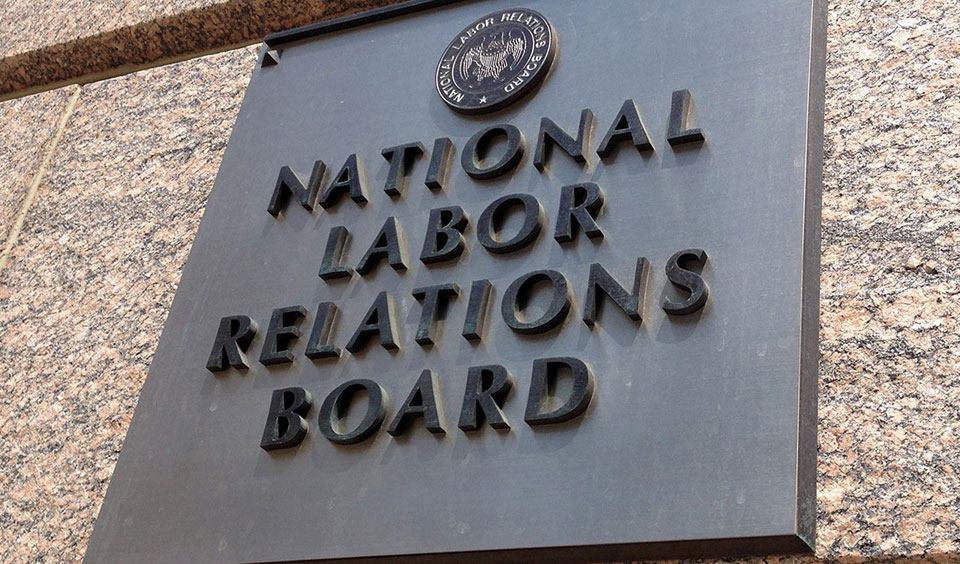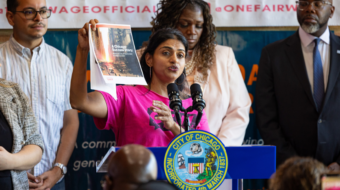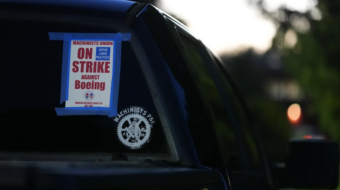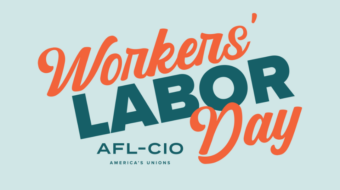
WASHINGTON—In a decision that could put more money into illegally fired workers’ pockets—and that may make bosses think twice about breaking labor law—the National Labor Relations Board has ruled fired workers must get not just net back pay, but compensation for all the other costs they shoulder to keep themselves and their families alive while battling for their rights and reinstatement.
That includes “costs such as out-of-pocket medical expenses, credit card debt, or other costs that are a direct or foreseeable result of the unfair labor practices” by their bosses and employers, NLRB Chair Lauren McFerran wrote in the ruling.
“The board determined compensation for those losses should be part of the standard, make-whole remedy for labor law violations,” she added in its decision, one of three notable pro-worker judgements the NLRB issued just before the holidays.
All three were decided by 3-2 votes. The board’s Democratic members, named by President Joe Biden, sided with the workers. Republican Donald Trump’s two holdovers voted against the workers. In one case, involving Musicians Local 21 in San Antonio, the majority, as directed by the U.S. Court of Appeals for D.C., reversed an anti-worker ruling from the former Trump-named Republican board majority.
The big deal that could put more money in workers’ pockets came from a case originating in Northern California in 2021, after Thryv, Inc., a marketer of Yellow Pages ads, unilaterally laid off its six outside sales reps, members of Electrical Workers (IBEW) Local 1269 of San Francisco, almost two years before.
The union tried to bargain against the layoffs, and then against their effects. Thryv didn’t give Local 1269 the information it needed to do so, the board’s administrative law judge ruled, and the NLRB agreed. But the board majority used the Thryv case to seek briefs to clarify what the “make-whole” remedy for labor law-breaking should be.
Until now, it’s only been net back pay. Now it’s going to be a lot more. Reaching back to individual cases in 1938, 1941 and 1955 where NLRBs said all expenses illegally fired workers incurred should be counted, the board made that the rule.
“Upon careful consideration of our remedial authority and our history of addressing the effects of unfair labor practices, we find that standardizing our make-whole relief to expressly include the direct or foreseeable pecuniary harms suffered by affected employees is necessary to more fully effectuate the make-whole purposes” of labor law, McFerran wrote.
After all, she pointed out “make-whole” is in section 10 of the National Labor Relations Act to produce “restoration of the situation, as nearly as possible, to that which would have obtained but for the illegal discrimination” against the unionists by their bosses,
Just as happens now, the board will have specify how much each worker is owed, and the NLRB’s administrative law judge must hold a hearing on those figures, and let the boss contest them. But McFerran also indicated, deep in the decision, that the board might not stop with making the workers whole for all their expenses.
“We emphasize we do not conclude this reflects the limits of the board’s statutory remedial authority or that some other form of make-whole relief might not” be ordered, she said.
Only the so-called National Federation of Independent Business, a key cog of the radical right, posted a reaction on its website. It said it filed a brief with the NLRB arguing the board should stick only to net back pay, which unions point out is minimal and doesn’t deter labor law-breakers. “The act does not authorize ‘consequential damages,’” the lobby declared.
One of the other two cases pitted “contractors,” the musicians of the San Antonio Symphony, members of AFM Local 21, against the bosses of the Tobin Center, the hall the symphony rents. That technically made the musicians “contractors.”
In a 2017 contract fight, the musicians leafletted Tobin Center attendees outside the hall until the bosses called the cops, who threatened to arrest the unionists for leafleting there. The center won a ban on such leafleting when three Trump nominees controlled the NLRB, but Local 21 went to the appeals court in D.C. It ruled in their favor, finding the Trump majority’s reasoning violated the National Labor Relations Act.
By the time the judges sent the case back to the NLRB for a second try, the board’s lineup had changed and Local 21—and “contractors” in general, the board said—re-won their right to leaflet, too. That also informational picketing or anything else on a public sidewalk.
The other case, involving Operating Engineers Local 139, saw the board majority reaffirm a 1964 NLRB decision cracking down on the “inherent danger of coercion” when bosses question workers as bosses prepare to defend themselves against labor law-breaking complaints. Again, the two Republicans said bosses do nothing wrong.
“The employer must communicate to the employee the purpose of the questioning, assure that no reprisal will take place, and obtain participation on a voluntary basis,” the three-member board majority ruled. Bosses “must not be hostile to union organization and questioning…must not be itself coercive in nature. Questions must not exceed…the legitimate purpose by prying into other union matters.”










